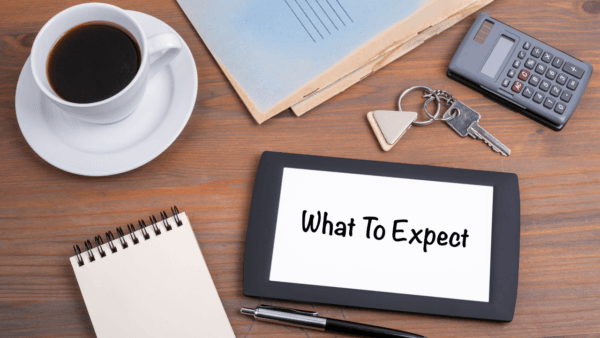Personal Growth is a transformative journey that involves self-discovery, learning, and continuous development. It encompasses the intentional effort to become a better version of oneself, both personally and professionally. Tracking progress in personal growth becomes a crucial aspect of this journey, acting as a compass that guides individuals towards their desired state of being.

Definition of Personal Growth
Personal growth is the intentional and continuous process of expanding self-awareness, acquiring new skills, fostering positive behaviors, and evolving emotionally, mentally, and spiritually. It is a journey that involves embracing challenges, learning from experiences, and cultivating a mindset of self-improvement.
Importance of Tracking Progress in Personal Growth
Why Measure Progress in Personal Growth?
- Enhancing Self-Awareness:
- Tracking progress allows individuals to gain insight into their strengths, weaknesses, and areas for improvement.
- By analyzing patterns of behavior and emotional responses, individuals develop a deeper understanding of themselves.
- Motivation and Sustaining Momentum:
- Visible progress serves as a powerful motivator, encouraging individuals to persevere in their personal growth efforts.
- Achieving and celebrating milestones provides a tangible sense of accomplishment, fueling the motivation to continue the journey.
- Identifying Effective Strategies:
- Measuring progress enables individuals to assess the effectiveness of the strategies they employ for personal growth.
- Identifying what works and what doesn’t allows for strategic adjustments, optimizing the path to growth.
- Providing a Sense of Direction:
- Progress tracking acts as a roadmap, helping individuals navigate through the vast landscape of personal development.
- It provides a clear sense of direction, allowing individuals to set realistic goals and establish a purposeful trajectory.
In essence, measuring progress in personal growth is not just about ticking off achievements; it’s about gaining self-awareness, staying motivated, refining strategies, and creating a roadmap for one’s transformative journey. In the following sections, we’ll delve into each aspect to understand how tracking progress contributes to the holistic process of personal growth.
Setting the Foundation: Establishing Metrics in Personal Growth
In the pursuit of personal growth, setting a solid foundation involves the strategic establishment of metrics. These metrics serve as the compass, providing clear indicators of progress and guiding individuals toward their desired state of being. Let’s delve into the key components of this foundational step.
Defining Tangible Indicators
To effectively measure progress, it’s essential to define tangible indicators that reflect personal growth. These indicators should be observable, quantifiable, and directly linked to the facets of development that matter most.
Examples: Improved Emotional Regulation, Enhanced Interpersonal Skills
- Improved Emotional Regulation:
- Tangible Indicator: The ability to identify, understand, and manage one’s emotions in challenging situations.
- Observable Outcomes: Decreased stress responses, improved decision-making during emotional moments.
- Enhanced Interpersonal Skills:
- Tangible Indicator: Positive interactions, effective communication, and the ability to build meaningful connections.
- Observable Outcomes: Improved teamwork, stronger relationships, and the capacity to resolve conflicts constructively.
By defining these indicators, individuals gain clarity on the specific areas of personal growth they aim to enhance, making the journey more focused and purposeful.
Aligning Metrics with Personal Goals
Metrics must align seamlessly with personal goals to ensure that progress is not just quantifiable but also meaningful. It involves a thoughtful integration of what matters most to an individual’s vision of self-improvement.
For example, if the overarching goal is to lead a more balanced life, metrics may include:
- Hours spent on work versus leisure.
- Quality of relationships and social connections.
- Personal fulfillment derived from various aspects of life.
Aligning metrics with personal goals enhances the relevance of progress tracking, fostering a sense of purpose and resonance with the broader objectives of personal growth.
The Role of SMART Goals
Adopting SMART goals as the framework for metrics adds a layer of precision and effectiveness to the personal growth journey.

- Specific: Clearly define what is to be achieved, leaving no room for ambiguity. For instance, “Improve emotional regulation during work-related stress.”
- Measurable: Establish concrete criteria to assess progress objectively. This could involve quantifiable measures like the number of stress-free workdays.
- Achievable: Ensure that the goals are realistic and attainable within the given context. Setting small milestones, such as weekly emotional regulation exercises, makes the larger goal more achievable.
- Relevant: Align goals with the broader objectives of personal growth. If enhanced emotional regulation contributes to overall well-being, it aligns with the relevance criterion.
- Time-Bound: Set a specific timeframe for achieving each goal. This adds a sense of urgency and structure to the personal growth plan, such as achieving a certain level of emotional regulation within three months.
Incorporating SMART goals into the metrics-setting process transforms abstract aspirations into actionable steps, fostering a systematic and effective approach to personal growth.
As individuals embark on the journey of self-improvement, establishing metrics becomes the cornerstone of their progress tracking. Defined indicators, aligned with personal goals and structured through SMART criteria, create a robust foundation for measuring growth in a meaningful and sustainable way. This intentional approach not only makes progress tangible but also enhances the overall effectiveness of the personal growth journey.
Navigating the Journey: Monitoring and Recording Progress
The journey of personal growth is dynamic, and monitoring and recording progress serve as the navigational tools that keep individuals on course. In this section, we explore the various ways to effectively track and document the transformative process.
Creating a Personal Growth Journal
A personal growth journal is a tangible repository of self-discovery and progress. It provides a structured space for individuals to:
- Reflect on daily experiences.
- Articulate emotions, challenges, and triumphs.
- Set and track goals.
The act of writing fosters clarity and introspection, making it a powerful tool for monitoring personal growth. Regular entries serve as a documented roadmap, offering insights into patterns, triggers, and areas for improvement.
Utilizing Technology and Apps
In the digital age, technology can be harnessed to streamline progress tracking. Apps and online platforms designed for personal development offer features such as:
- Goal setting and tracking.
- Mood monitoring.
- Habit formation.
These tools provide real-time feedback, making it easier for individuals to stay accountable and motivated on their journey. Whether it’s a habit-tracking app or a mood journal, technology offers accessible and convenient avenues for progress monitoring.
Regular Self-Reflection Sessions
Scheduled self-reflection sessions are intentional pauses in the personal growth journey. During these sessions, individuals can:
- Assess achievements and setbacks.
- Reevaluate goals in light of evolving aspirations.
- Identify patterns and trends in behavior.
Self-reflection acts as a compass, ensuring that the journey aligns with the individual’s evolving understanding of self and purpose.
Seeking Feedback from Others
External perspectives are invaluable in the personal growth process. Seeking feedback from trusted friends, mentors, or coaches provides:
- Insight into blind spots or overlooked strengths.
- Constructive criticism that fuels growth.
- Encouragement and support.
Feedback from others serves as a reality check, offering a more holistic view of progress and areas that might require additional attention.
Celebrating Achievements Along the Way
Celebrating achievements is not just a joyous occasion; it’s an integral part of the personal growth journey that fuels motivation and sustains momentum.
The Significance of Acknowledging Progress
Acknowledging progress is more than a pat on the back; it’s a conscious recognition of one’s efforts and growth. This acknowledgment:
- Reinforces positive behaviors.
- Boosts confidence and self-esteem.
- Creates a positive feedback loop.
Recognizing progress is an act of self-compassion, acknowledging the commitment and resilience required for personal growth.
Developing a Ritual of Celebration
Rituals of celebration add a sense of ceremony to achievements. Whether it’s treating oneself to a favorite meal, taking a day off, or engaging in a meaningful activity, rituals:
- Anchor achievements in positive emotions.
- Create memorable milestones in the personal growth journey.
- Strengthen the association between effort and reward.
Rituals transform achievements into more than just checkboxes; they become occasions to be cherished and remembered.
Cultivating a Positive Mindset

Celebrating achievements contributes to the cultivation of a positive mindset, an essential component of sustained personal growth.
- Gratitude Practice: Expressing gratitude for progress, no matter how small, reinforces a positive outlook.
- Positive Affirmations: Affirmations create a positive self-narrative, fostering optimism and self-belief.
- Visualizing Success: Visualization techniques enhance the anticipation of future achievements, fostering a forward-looking and positive mindset.
Cultivating a positive mindset is not just about seeing the glass as half full; it’s about recognizing the power of one’s mindset in shaping the trajectory of personal growth.
Encouraging Intrinsic Motivation
Intrinsic motivation, the inner drive that stems from personal satisfaction and fulfillment, is a powerful force in sustaining personal growth.
- Connecting Achievements to Values: Linking achievements to core values enhances their intrinsic meaning.
- Focusing on the Journey, Not Just the Destination: Emphasizing the transformative process, rather than just the end goal, sustains intrinsic motivation.
- Embracing Challenges as Opportunities: Viewing challenges as chances for growth rather than obstacles fosters resilience and intrinsic motivation.
Encouraging intrinsic motivation ensures that the joy of personal growth is derived from the journey itself, making it a sustainable and fulfilling endeavor.
Celebrating achievements is more than a momentary pause; it’s an intentional and integral aspect of personal growth. From acknowledging progress to developing rituals of celebration, each act contributes to a positive mindset and intrinsic motivation, creating a robust foundation for the continued journey of self-improvement.
Adaptation and Refinement: Adjusting Strategies Based on Progress
Personal growth is a dynamic journey, and the ability to adapt and refine strategies based on progress is a crucial skill. This section explores the iterative process of evaluating, recognizing, and adapting strategies for continuous improvement.
Regular Evaluation and Reflection
- Importance of Evaluation: Regularly evaluating progress provides insights into the effectiveness of chosen strategies.
- Reflective Practices: Incorporating reflective practices, such as journaling or mindfulness, aids in understanding the emotional and mental aspects of the journey.
- Aligning with Goals: Evaluation ensures that the strategies align with the overarching goals of personal growth.
Recognizing What Works and What Doesn’t
- Identifying Successes: Recognizing successful strategies reinforces positive behaviors and encourages their continuation.
- Learning from Failures: Acknowledging what doesn’t work is an opportunity for learning and refinement.
- Iterative Learning Process: Personal growth is an iterative learning process where recognizing patterns contributes to refining future strategies.
Flexibility and Adaptability in Personal Growth Plans
- Embracing Flexibility: Rigidity can impede progress; hence, flexibility in adapting plans to changing circumstances is vital.
- Adjusting Goals: Being adaptable involves adjusting goals based on evolving priorities and insights gained during the journey.
- Openness to Change: An open mindset to change fosters resilience and agility in the face of unexpected challenges.
The Iterative Nature of Personal Growth
- Continuous Cycle: Personal growth is a continuous cycle of setting goals, implementing strategies, evaluating progress, and making adjustments.
- Learning from Each Cycle: Each cycle provides valuable lessons, contributing to a more informed and refined approach in the next iteration.
Embracing Growth as a Process: Understanding that personal growth is a process, not a destination, encourages a mindset of continuous improvement.
Enhancing the Process: Additional Considerations
Dealing with Setbacks and Learning Opportunities
- Normalizing Setbacks: Setbacks are inherent in any growth journey; normalizing them reduces self-criticism and fosters resilience.
- Learning Opportunities: Viewing setbacks as learning opportunities reframes challenges into valuable experiences for growth.
- Adapting in the Face of Setbacks: Rather than seeing setbacks as failures, they become signals for adapting and refining strategies.
Balancing Long-Term Goals with Short-Term Achievements
- Strategic Goal Setting: Balancing long-term vision with short-term achievable goals provides a roadmap for sustained progress.
- Celebrating Small Wins: Acknowledging and celebrating small achievements contributes to motivation and reinforces positive habits.
- Maintaining Momentum: A balance between long-term goals and short-term wins maintains momentum, preventing burnout and frustration.
Incorporating Flexibility without Compromising Consistency
- Consistency in Core Principles: While being flexible in approaches, maintaining consistency in core principles ensures a stable foundation.
- Adapting to Evolving Circumstances: Flexibility allows for adaptation to evolving circumstances without compromising the overall commitment to personal growth.
- Building Adaptive Habits: Establishing habits that are adaptable to various situations fosters consistency in the face of changing environments.
Navigating the personal growth journey involves a continual process of adaptation, refinement, and learning. Whether it’s through regular evaluation, recognizing successes and failures, maintaining flexibility, or understanding the iterative nature of personal growth, individuals can create a dynamic and effective approach to their transformative journey. Incorporating additional considerations such as dealing with setbacks, balancing goals, and combining flexibility with consistency enhances the overall process, making personal growth a sustainable and fulfilling endeavor.
Incorporating External Support
Embarking on the personal growth journey becomes even more enriching when supplemented with external support. In this section, we explore the significance of seeking guidance, building a community, and enlisting professional support for an enhanced measurement of progress.
Seeking Guidance from Mentors or Coaches
- Wisdom from Experience: Mentors and coaches bring valuable experience and insights, offering guidance based on their own journeys of personal growth.
- Objective Perspectives: External guidance provides an objective perspective, helping individuals identify blind spots and areas for improvement.
- Customized Strategies: Mentors and coaches can assist in tailoring strategies, ensuring they align with individual goals and values.
Importance of Community and Accountability Partners
- Shared Experiences: Being part of a community allows individuals to share experiences, providing a sense of belonging and understanding.
- Mutual Accountability: Accountability partners foster commitment by holding each other responsible for progress, creating a supportive and motivating environment.
- Diverse Perspectives: A community introduces diverse perspectives, enriching the personal growth journey with varied insights and approaches.
How Professional Support Can Enhance Measurement and Progress
- Expert Guidance: Professionals bring specialized knowledge and techniques, optimizing the measurement of progress and the effectiveness of personal growth strategies.
- Structured Approaches: Professional support often involves structured frameworks and methodologies, providing a systematic approach to personal development.
- Objective Assessment: Professionals can offer objective assessments, utilizing their expertise to evaluate progress with a more nuanced perspective.
Conclusion
In the journey of personal growth, measuring progress serves as the compass, guiding individuals toward their evolving selves. It’s not merely about ticking off achievements but about gaining self-awareness, staying motivated, and creating a roadmap for continued improvement.
The path of personal growth is not linear; it’s a mosaic of experiences, lessons, and self-discovery. Embracing this journey with an open heart allows for the acceptance of both triumphs and setbacks as integral parts of the transformative process.
Personal growth is not a destination but a continuous and iterative process. Each step contributes to a richer understanding of oneself, making the journey perpetual and ever-evolving.
Take a moment to reflect on your personal growth metrics. What indicators resonate with your goals? How can you refine and adapt your approach based on your reflections?
Set clear and actionable goals for your personal growth journey. Break them down into manageable steps and commence tracking your progress. The journey of a thousand miles begins with a single step.




